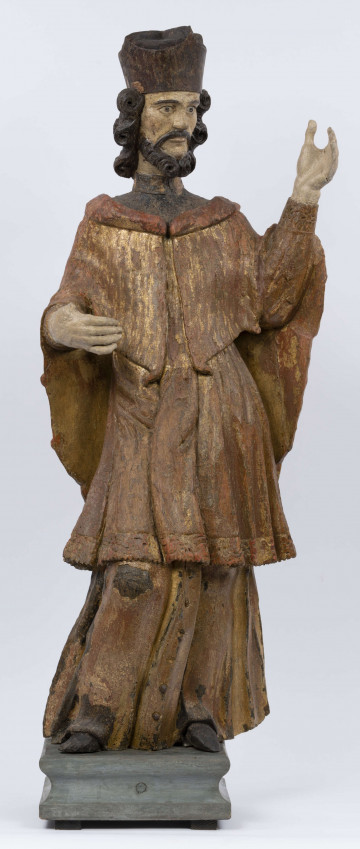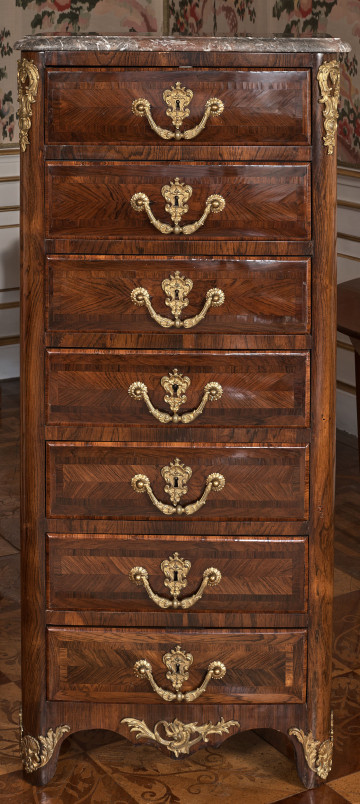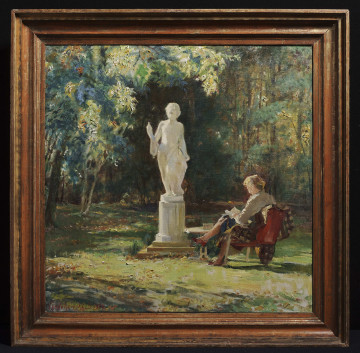The bag
1949 — 1954
Museum of the history of Polish Jews
The collection comprises archival material and memorabilia related primarily to the life of Tonia (Antonina) Bialer Lechtman (mainly correspondence, photographs, documents; her textiles from a Stalinist prison; an album of prints from the French internment camp from her husband Sioma Lechmann) and her children, Wera and Marcel Lechtman (in their case, especially from the period of March 1968).
Tonia Lechtman was born in 1910 into a wealthy Jewish family of the Bialers. When she was a teenage girl and became involved in the Polish Communist Party, her parents, Aron and Ruchla Bialer, decided to move to Palestine for fear that their daughter would face serious consequences (she had already been arrested once, in Łódź, for a few days when she was 14 years old). However, even there her commitment did not falter (this time she was imprisoned for half a year, in Bethlehem), and she was expelled from Palestine in 1937. There Sioma Lechtmann enlisted in the International Brigades. He fought in the Spanish Civil War. His wife remained in France because she was pregnant.
France later welcomed anti-fascist soldiers, but they were interned. Sioma Lechtmann was in a camp in Gurs. The couple, sometimes including their daughter (Vera), saw each other four times. During one of these visits Tonia became pregnant for the second time (with their son Marcel). For her birthday she received from her husband an album of prints made by fellow prisoners, probably from Thälmann's Austro-German brigade. Sioma Lechtmann was soon afterwards transported to another camp and then to Auschwitz-Birkenau. He died in early 1945 in a death march.
Tonia, with Marcel and Wera Lechtmann, survived the war by moving around France and by escaping to Zurich. Tonia Lechtman (she later simplified the spelling of her surname: to one letter 'n' at the end) worked just after the war in the Unitarian Service Community, taking care of prisoners in German camps. Her work, which included helping prisoners return to Poland from Germany and France, involved constant travelling. At that time (from 1943), Wera and Marcel were staying in a Swiss orphanage. Their mother took them away at the turn of 1947/1948, as she had settled in Piekary Śląskie, where the Unitarians were organising a hospital. When the Unitarian Service Community could no longer operate in Poland (the Stalinist wave was rising), the Lechtmans moved to Warsaw. Tonia Lechtman worked in the Ministry of Industry and Trade where she was in charge of children's homes. She was arrested in the summer of 1949 on suspicion of espionage. She was released from a Stalinist prison in October 1954. Her children stayed in orphanages and boarding schools.
She did not leave Poland, even though she had a large family in Israel asking her to. She worked as a librarian. She left only during March '68, in 1971, following her son and daughter.
In 2011 Marcel Łoziński completed the film Tonia i jej dzieci (Tonia and Her Children), in which he reconstructs the story of Tonia Lechtman with Marcel and Vera Lechtman.
Znaleziono 16 obiektów

1790 — 1810
National Museum in Lublin

XIX century
Castle Museum in Łańcut

Castle Museum in Łańcut
DISCOVER this TOPIC
Museum of King Jan III's Palace at Wilanów
DISCOVER this PATH
Educational path